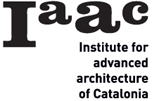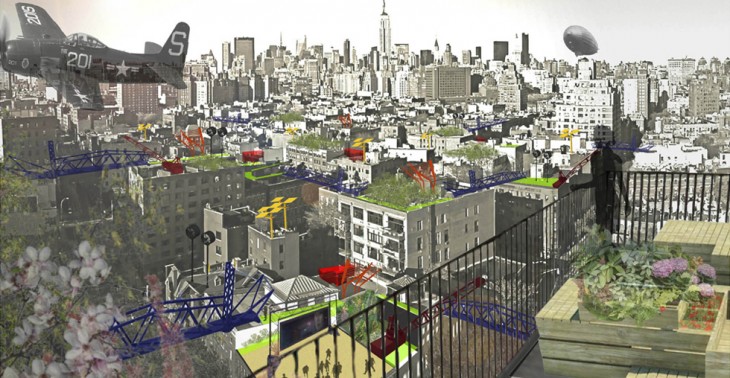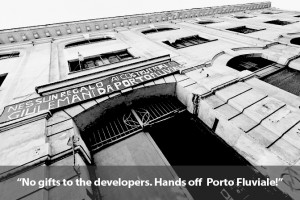“Space is no longer the container, the frame or the context of social processes but a social process in itself.” Henry Lefebvre
As a student of architecture, I find extremely interesting the title of this article, probably an “evergreen” in the various thoughts and past architectural credo, but also one of the goals of those belonging to this century.
In this article I would like to mention and tell what is happening in the last few years, in the city where I have grown culturally and “architecturally”: Rome.
I will do it through ”active experiences” of others, but to which I have always found myself interested in, all without losing our guideline: architecture and happiness.
Currently there are nearly fifty squat-occupied spaces throughout Rome, usually found in previously abandoned buildings which are now inhabited by communities of both Italians and immigrants who cannot afford to join the rental market. The occupations network is administered by highly politicised Urban Social Movements, often in disagreement with each other because of different “visions” but sometimes collaborating too.
Their model of resistance to mainstream urban development has lately achieved a certain success. Some occupations have managed to resist the pressures from authorities and developers and at the same time have expanded their relational networks with the city surroundings. With the recent shift of objectives from the right to housing to the right to dwelling, through their daily activities, the squatter communities are filling up those gaps created by the disappearance of the welfare state. Not only do they offer housing solutions for people in need, but they have implemented open desks for future housing assistance and programmes for care, leisure and education activities.
In my opinion, one of the fundamental principles of some of these realities is the idea of a new institution of the commune, which disrupts the mechanism of parties interference (no-old world-politics) and it will be guiding principle of the new cultural-policies thinks from the bottom (bottom-up process).
In this manner, one of these centers, “Teatro Valle” (occupied), describes their intent in the community in which it is set: “A place that is neither public nor private but ruled by the community of artists and citizens who take care of and decide what directions to give to Teatro Valle. With the collaboration of Stefano Rodotà, Ugo Mattei and other lawyers in a participatory process, is developing a legal form of advanced functions reproducible model for schools, universities, hospitals, etc. …”
As I lived it, I can define it a place where to stay alive and live together, sharing not only a space but also the commitment to partake in a struggle against the urban capitalstic development, such as most of the mentioned above squat-occupied are doing.
Another interesting example is the work done by the students of the DPU summerLab (Bartlett Development Planning Unit) focuses on the analysis and active study of Port Fluviale (in English “River Harbor” – occupied).
These are the words of one of the organizers of the workshop, Professor Camillo Boano:
“Conducting workshops in “Rome Occupation City” and “Zurich Liminal Contours” have allowed us and the participants to test and elaborate on the fertile lines between mapping and interpreting sites through stories that are narrated in the becoming of spaces in their political allure, their potentials. This idea of the “tactical” and the word “tactic”, introduced by Gramsci, was of great significance for the development of DPUsummerLab because it denotes “resistance” within a given urban context allowing the participants to, unlike with the radical tools of modernist urbanism, depict and investigate resistance as an outcome of urban action. This not only dictates an overall transformation but also favors bits-and-pieces, incremental change in relation to the context within which it operates and so used for both critical assessments and the processes of spatial production” – and he continues – “Taking more deliberately, architecture conceived as a specific kind of activity but also a “particular frame of mind” need to be protected from a critical violence and its derive to overpragmatic trend. “Architecture must be defended” according to Hays, as “enabling condition and a restraint on thought and actions.” Therefore it is not a thing, not just a form, but also a more complex, contingent condition. It must be defended by creating a new critical project centred on architecture as social practice, on its political possibility.” Extract from the article “DPU summerLab as a way of defending architecture” by Camillo Boano.
These rising urban idioms suggest the need to develop a new, advanced, design-research that, despite its inherent forward-looking nature, does not fixate on elements, images and forms, but first of all on its processes and potentialities.
Suggestion:
-http://www.spacemetropoliz.com/
-http://vimeo.com/60149775
Text References:
-http://www.teatrovalleoccupato.it/category/english
-http://www.bartlett.ucl.ac.uk/dpu/programmes/summerlab
-https://www.bartlett.ucl.ac.uk/dpu/programmes/summerlab/2013-series/rome
Picture Reference:
-http://www.cityvisionweb.com/competition/n5p3a8/


